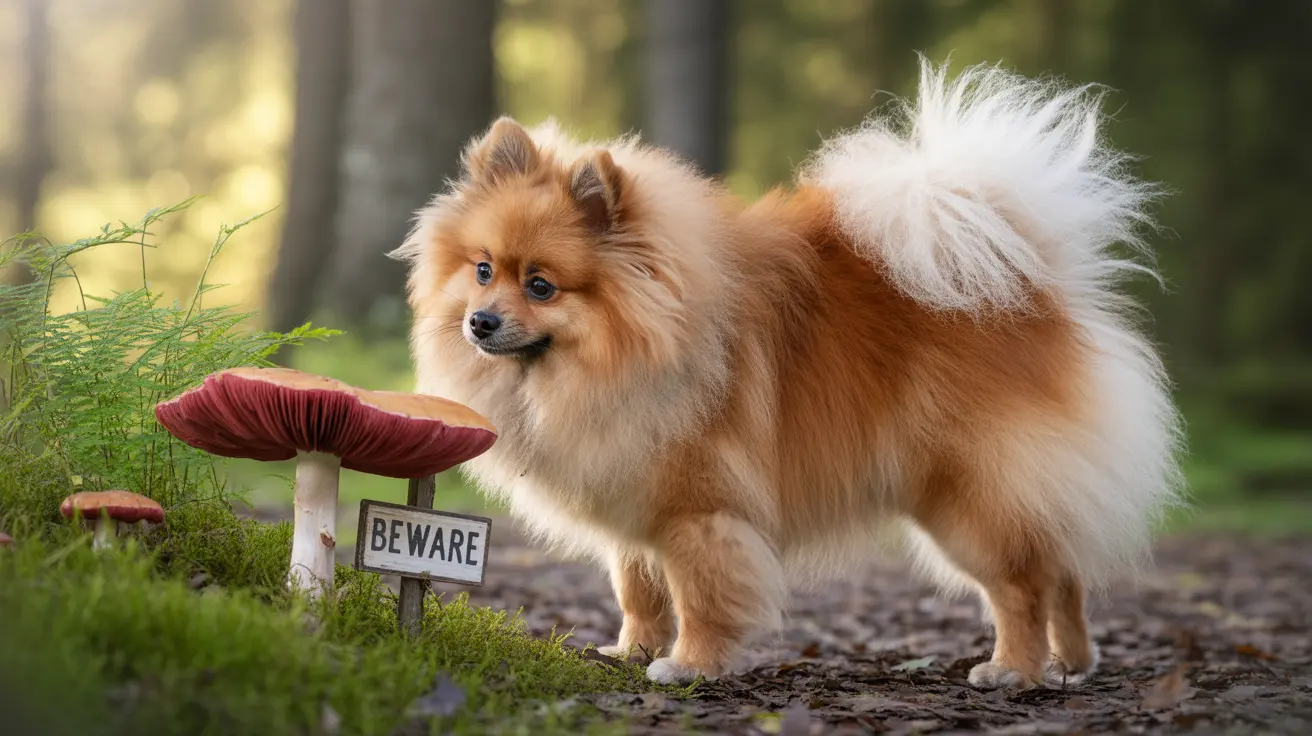As a pet owner, you've likely wondered, "Are mushrooms bad for dogs?" The answer isn't straightforward - while some mushrooms are safe for canine consumption, others can be deadly. Understanding the difference could save your dog's life.
This comprehensive guide will explore which mushrooms are safe for dogs, which ones to avoid, and what to do if your furry friend consumes a potentially dangerous fungus. Let's dive into everything you need to know about dogs and mushrooms.
Safe vs. Dangerous Mushrooms: What Dog Owners Need to Know
Store-bought mushrooms from grocery stores are generally safe for dogs when served plain and in moderation. Common varieties like button mushrooms, portobello, and shiitake can be occasionally shared with your pet without concern.
However, wild mushrooms present a serious threat to dogs. While only about 1% of mushroom species are toxic, these dangerous varieties can cause severe illness or death. Even experienced mushroom foragers struggle to distinguish safe varieties from deadly ones, making any wild mushroom consumption a potential emergency for dogs.
Most Dangerous Mushroom Species for Dogs
Several mushroom species are particularly dangerous to dogs, including:
- Death Cap (Amanita phalloides) - Highly toxic and often fatal
- Muscarine-containing species (Inocybe and Clitocybe)
- Amanita muscaria and Amanita pantherinoides
- Scleroderma species (uniquely toxic to dogs)
These mushrooms can cause severe organ damage, with symptoms sometimes taking days to appear. Dogs seem particularly attracted to certain toxic varieties, possibly due to their fishy scent.
Recognizing Mushroom Poisoning Symptoms
If your dog has consumed toxic mushrooms, symptoms may appear within 15 minutes to 24 hours after ingestion. Watch for:
- Vomiting and diarrhea
- Lethargy and weakness
- Jaundice (yellowing of gums and eyes)
- Uncoordinated movement
- Excessive drooling
- Seizures or tremors
- Decreased heart rate
- Severe abdominal pain
Emergency Response and Treatment
If you suspect your dog has eaten wild mushrooms, treat it as an emergency. Don't wait for symptoms to appear, as early intervention is crucial for survival. Immediately:
- Contact your veterinarian or emergency animal hospital
- Collect mushroom samples (in paper, not plastic) if possible
- Call ASPCA Animal Poison Control: (888) 426-4435
- Document when and where the mushroom was consumed
Prevention Tips for Dog Owners
To protect your dog from dangerous mushrooms:
- Regularly inspect and clear your yard of mushrooms
- Keep dogs leashed in wooded areas
- Train solid "leave it" commands
- Remove mushrooms immediately after rain
- Monitor your dog during outdoor activities
Frequently Asked Questions
Are mushrooms bad for dogs, and which types are safe to eat?
Store-bought mushrooms are generally safe for dogs in moderation when served plain. However, wild mushrooms can be extremely dangerous and should always be avoided. Even experts struggle to identify safe varieties, so it's best to prevent any wild mushroom consumption.
How do I identify poisonous mushrooms that my dog might encounter?
Accurate mushroom identification is challenging even for experts. Rather than trying to identify safe versus dangerous mushrooms, treat all wild mushrooms as potentially toxic and keep your dog away from them.
What are the symptoms of mushroom poisoning in dogs, and when should I seek emergency care?
Symptoms can include vomiting, diarrhea, lethargy, jaundice, and seizures. Seek immediate emergency care if you suspect your dog has eaten any wild mushrooms - don't wait for symptoms to appear.
Can I safely give my dog store-bought mushrooms, and what precautions should I take?
Yes, plain store-bought mushrooms are safe in moderation. Avoid seasoned or cooking mushrooms with oils, garlic, or onions. Start with small amounts to ensure your dog tolerates them well.
How can I prevent my dog from eating wild mushrooms, especially in areas where they are common?
Keep your dog leashed in areas where mushrooms grow, maintain a mushroom-free yard, and teach reliable "leave it" commands. Regular yard inspections, especially after rain, help prevent accidental consumption.
Conclusion
While store-bought mushrooms can be safe for dogs in moderation, wild mushrooms pose a significant risk. Always err on the side of caution - if you suspect your dog has eaten any wild mushrooms, seek immediate veterinary care. Prevention through careful monitoring and training is the best way to keep your dog safe from potentially deadly mushroom poisoning.






